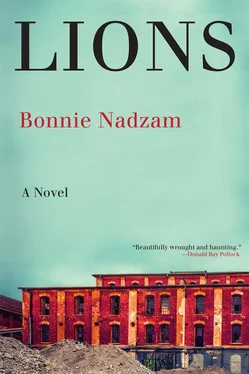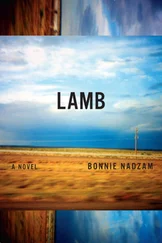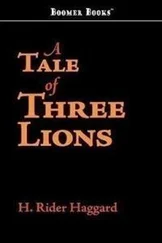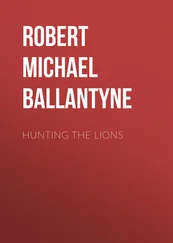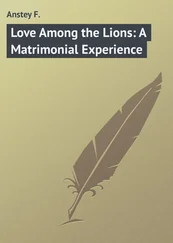“It’s true,” Gordon said, as his face was slowly erased. “It follows me everywhere now.”
July Fourth weekend someone put a sign up on the highway at the westbound Lions exit that said living ghost town stenciled in white paint on a piece of black painted plywood. There was a longer line than usual of college students and families and truckers all heading west pulled off the highway and stopped at May’s for sandwiches, french fries, ice cream sundaes. Easily twice the regular business the Lucy Graves had seen in years. Every one of the customers, it seemed, had come into town looking for an imaginary city. A haunted hotel. Cowboys and horses. A gold mine. A saloon.
May rolled her eyes at it but was pleased by the traffic. Boyd had to go twice to Burnsville to get more sandwich bread, cold cuts, ground beef, and instant spuds. They came in off the highway from Omaha, Lincoln, Cheyenne, Kansas City, Cedar Rapids, Des Moines. The diner was a lark. A live museum. What was this place, they wondered, stepping out of their cars on the deserted, preternaturally quiet main street in town. Marybeth Sharpe waved at them all from her rocking chair. They rooted around in her musty, shadowy store and bought crystal doorknobs and rusting metal plate advertisements for Angel soap and John Deere tractors and they bought tarnished hunting knives in sheaths of needlepointed roses and rotted leather, and spoons of solid silver. After they left, Marybeth walked crookedly into the diner, grinning wide, and laid a dollar bill down in front of each customer, as a gift.
A journalist from Greeley came in early one day. Outside, the hot, white sky hung low. The diner was crowded, and the journalist took a seat at the lunch counter. She had smart, smooth, dark hair, wore sandals with hiking soles, and kept a slim, silver computer in a satchel over one shoulder.
When Leigh greeted her, the woman asked if she knew anything about the man who’d come into town and been drowned in the water tower.
“Nobody drowned him,” Leigh said. “He drowned himself.”
“Are you sure?”
Leigh shrugged.
“Did any of you have contact with him?”
“Coffee?” Leigh asked.
“Sure.”
Leigh poured the woman a cup and handed her a laminated menu. “Where are you from?”
“Greeley.”
“You’re writing a story?”
“Don’t you think it’s curious? The man drowned in the water supply? It used to happen in the early 1900s. But there’s been no record of such a death in this state for almost a century. What do you make of that?”
Leigh shrugged. “What do you?”
“It happened in Lions in 1923. Did you know that?”
“No.”
“It was a single man. A wanderer.”
“Really.” Leigh considered. “In a long coat?”
“A duster.”
“What’s that?”
“Old-fashioned version of a long coat.”
“Did he have a dog?”
“A dog?”
“This guy had a dog. Did anyone tell you about the dog?” As Leigh told the story, the woman drew her hand to her mouth and shook her head.
“Can you show me?”
“There’s a white cross on the highway.”
The woman made a note.
“Did you hear about the broken window over there?” Leigh asked.
“He was here in town?”
“No one told you about what happened in the bar?”
Annie Sterling spent an afternoon with Emery and Gordon in Marybeth’s shop looking through old, flaking, yellow newspapers that came apart in her hands, but found nothing that went as far back as 1923, and they could find no evidence of any other water tower drowning. Emery found an old curry comb he ran back and forth over the short grass. Gordon found a foot-long cast-iron mermaid on a stand that, if planted outside, would appear as though she were drifting at sea atop of a swath of high grass, hands interlaced behind her head. The ends of her fins were thin and ragged with rust, but the elliptical metal scales of her fish tail were immaculately, symmetrically fused. It looked to Gordon like each one had been individually molded. He shook his head in wonder and appreciation at what one of his grandfathers had no doubt made. The mermaid’s lips were parted, and her breasts pointed through the loose ends of her hair.
“Modeled after one of your grandmothers,” Georgianna said, surveying the mermaid’s face, then touching the bridge of its nose. “Anna. Or Ruth.”
“I think it’s older than that, Mom.”
“Louise, then. Or Sarah.”
Gordon set her in the front yard, suspended among eight-inch-high foxtails as if she were floating on her back among them. Totally unaware, everyone said, of a mermaid’s link to floods, storms, shipwrecks, and drownings, to spirits who would trap a man in a place he ought to know to flee.
Boy doesn’t even realize he’s drowning, they said.
Somebody ought to tell him.
Dock called the Greeley journalist who said she’d found the story of the drowned wanderer in a collection of bound public planning documents in a local library. She said she’d send copies along but never did.
“Too busy,” Dock said.
“It’s because there’s no such document,” May said.
“This is the newspaper,” Dock said. “She can’t just make shit up.”
Somehow, the echo of this narrow, dark-clothed man coming to town and drowning in the tower felt real to them. So many of them had seen the man who’d recently drowned. You could dismiss stories like these when they hadn’t touched you. This one had touched them.
They tried to imagine it, so many decades ago, same heat, same dust, same spirit of flight out of town, same longing and despair, and a tall, thin man in a dark coat coming to usher in the rest of the bad news. It gave one the sense of a long timeline of history folding up like a neat accordion of typewritten paper into a single carefully layered moment. It gave one the sense of a mirror hung somehow, somewhere in the empty space of Jefferson Street — the way heat could double and distort the inventory of the town, make the air in the distance shine and buckle and reflect little houses hung upside down in the vacant blue.
After her shift one afternoon at the end of July, Leigh found Gordon in the shop. She stood in a doorway of glaring light. He was standing beside the workbench, his fingertips on an old iron vice. He looked up.
“Why’re you just standing there?” She crossed the shop and picked up his fingers. He had no lights, fans, or machines running. She wrapped his arms around her own waist and interlaced her fingers behind his neck. For a moment she rested her cheek against his chest, but when she looked up at him, his eyes were streaming tears. He smiled and drew his sleeve across his face. Nothing but the wind and light pouring in through the open door and the chinks in the piled metal and sifting through their loose hair. There was color in his cheeks, and his dark curls were an overgrown mess. He was there and not, Gordon, and not. She backed up to the workbench and sat on it.
“You look like your dad.”
“Do I?”
“Have you eaten at all in the past week?”
“I miss him.”
She took his hand. “Let me ask you a question, though, Gordon. OK?”
“Go ahead.”
“I don’t mean any offense by it at all.”
“OK.”
“Do you think he was happy?”
“My dad?”
“Yes, your dad. Do you think he was happy?”
They were both picturing John Walker, then. Skinny, bespectacled, standing outside of the shop, wind blowing white wisps of his hair. Aloof. His gaze pointed at something no one else could see. Light as the air around him.
“I’ve been thinking about that a lot,” Gordon said. He was quiet a minute. Two. He took his hand from Leigh’s and sat up on the workbench alongside her and put his hand back on the old, red Wilton table vice. “I’ve been thinking that any wish, anything at all that a person might wish for,” he paused — his father had not been a man of wishes—“is like a branch being offered to a drowning man.” Show him anyone who lives for their home, he thought, for their family, or job, or for anything at all, and he’d show you a miserable person. A person who would hang on to that thing no matter how awful it was.
Читать дальше
